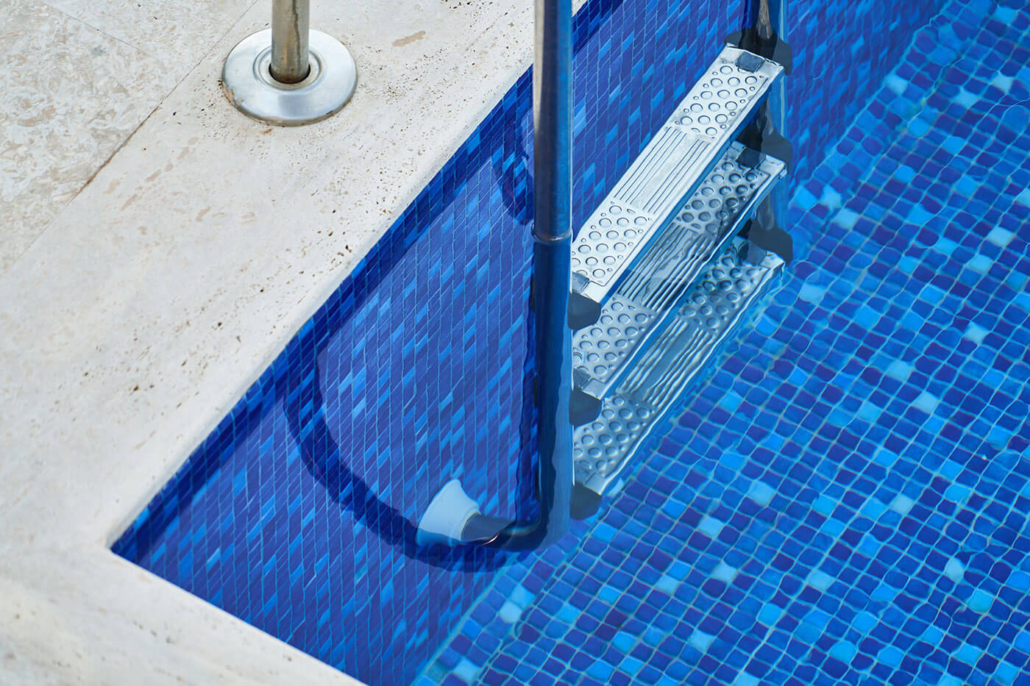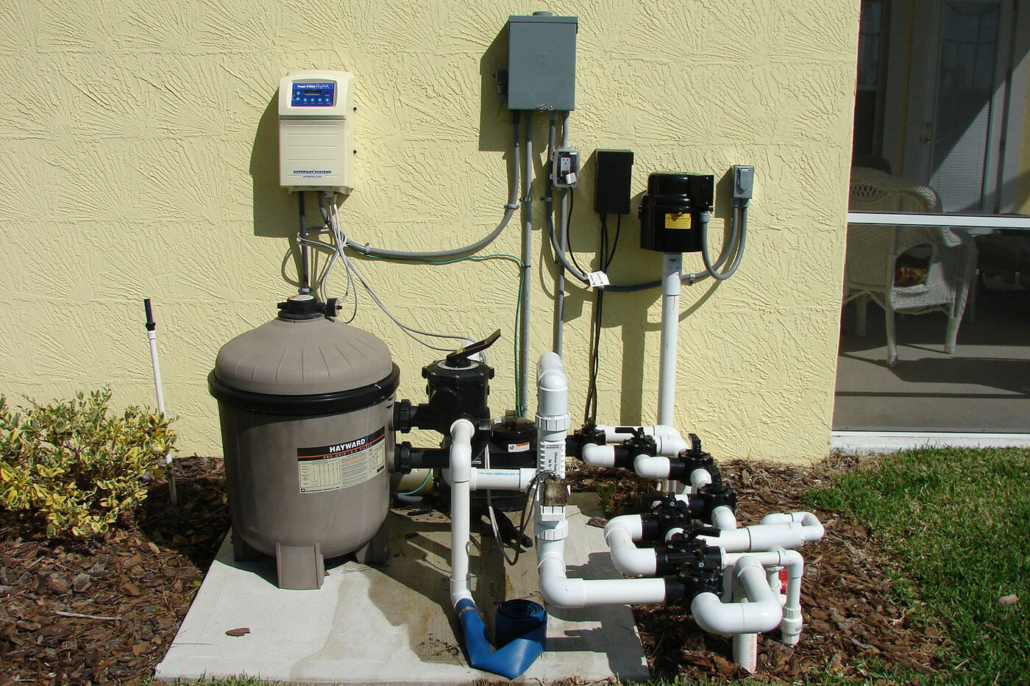Pools are designed to be watertight. Unfortunately, sealants can deteriorate over time, and some parts of the pool can settle and shift or wear out. The rule of thumb is this: if you are adding at least two inches of water to your pool weekly, you need to have a professional conduct pool leak detection.
Repairing pool leaks is crucial. Apart from helping you save chemicals, heat, and water, timely repair of pool leaks can also help ensure the pool’s structural components are not compromised. If we are conducting a home inspection for you, we can also provide referrals for pool inspectors to inspect your pool at the same time as our home inspection. Leak detection is a specialized branch of the industry. As such, it is something that’s best left in the hands of professionals.
The good news is around 95% of leaks turn out to be easy and inexpensive to repair. If you suspect you have a pool leak, be sure to check the following items before calling a professional for help:
Is your pool leaking all the time?
While this won’t rule out leaks in the plumbing, it is recommended that you check the shell of the pool and look for tears in the vinyl or cracks in the plaster. You also need to examine the tile line and take a closer look inside the skimmers. The most common leaks occur when the concrete pool and the plastic skimmer gets separated.
Are there wet areas around the pool?
Check the pool deck and the area between the pool and the equipment pad. Look for eroded areas or wet soil. If the swimming pool has a downhill slope, check to see if you can see any water from the hillside. This is important, so you’ll know where it’s going.
Pool Leaks: Types and Causes
Swimming pools are made to last for many decades. With proper care and upkeep, they often can. However, there are three common leaks that affect swimming pools:
- Fitting leaks
- Structural leaks
- Plumbing leaks

Structural Leaks
A leak in the vessel’s structure is referred to as a structural leak. Often, structure leaks can mean a fissure or crack in the pool shell. This type of leak will require immediate repair.
Most structural leaks or cracks can be attributed to the following:
- Ground movement
- Groundwater pressure
- Thawing and freezing cycles
- Settling due to soil shifting
- Poor engineering or construction
Fitting Leaks
Any penetration through the pool shell is called a fitting leak. The pool’s cavity is mainly plumbing. When a fitting is inserted, some builders will just pack in plaster around it. This leaves certain areas prone to leaks. For instance, if areas around the tiles or railing are fitted loosely, leaks are more likely to occur.
Plumbing Leaks
Correct installation of pool plumbing is critical because if it moves, it can leak. That said, it is essential the plumbing is adequately secured during installation. If run all the way to the ground or held down with straps, you can rest assured the plumbing will not move.
Plumbing leaks can be attributed to the movement of the system. Case in point: settling in the ground can cause systems to move and create a plumbing leak. Another possible issue that can cause a swimming pool’s plumbing system to leak is corrosion.

How to Identify Swimming Pool Leaks
Looking for swimming pool leaks can be straightforward if you know what to look for. If you notice any of the following, it is highly probable that you do have a swimming pool leak:
- Gaps or cracks in the concrete vessel
- Loose or displaced tiles
- Standing water or mushy spots around the pool
- Settling of the vessel into the ground
- Adding more water than usual
- The automatic filler constantly releases water
- Algae forms quickly after a chemical treatment
- Needing to add more water than usual
Swimming Pool Leak Hacks
Here are some of the hacks you can use to determine pool leaks:
The Bucket Method
Place a 5-gallon bucket on the second step of your pool. Fill it to match your pool’s water level. Turn off the pump and check the levels after 24 hours. If the water in the bucket is higher than the water surrounding it, you most likely have a leak.
Food Coloring
If you are positive you have a leak but are unsure of where it is, it would be a good idea to put some coloring near the area where you suspect the leak to be. If there is a leak, the food coloring will get sucked into the crack. The same principle applies to areas surrounding the fittings like the return, lights and main drain.
Preventing Swimming Pool Leaks
The secret is in the installation to prevent swimming pool leaks. Swimming pools can last for many years if they are installed correctly. To help prevent swimming pool leaks, make sure that:
- The plumbing is tightly secured and pressure tested
- The fittings are placed tightly
- The swimming pool is engineered by a professional
Conclusion
Swimming pool leaks can be straightforward to fix if detected early. Routine swimming pool checks are recommended to ensure you can identify any problems before they become costly to fix.
Call or Email Us Today!
Buying or selling a home in the Jacksonville FL area? Our detailed home inspection consists of a thorough examination of all systems and components of the home. See one of our sample home inspection reports and read our 5-star home inspection Jacksonville FL reviews. We’re always here to answer any questions, whether it’s weeks, months or years after your home inspection. Let our local, Jacksonville FL home inspectors help you make an informed decision.
Bold City Home Inspections provides home inspection services to all of Duval, St. Johns, Clay and Nassau counties. Click the button below for a FREE, no-obligation home inspection quote:
Navigation
Business Information
Atlantic Beach, FL 32233
Hours:
Mon – Fri 8am – 6pm
Sat – Sun 8am – 3pm
Home Inspector Proudly Serving:
Home Inspector Blog
- Common Home Inspection Findings in Homes Built Before 1950
- Benefits of Air Quality Testing
- Things to Look for When Touring a Home
- How Long do Asphalt Roof Shingles Actually Last?
- How Long Does a Home Inspection Take?
- Top Tips to Reduce HVAC Energy Costs and Lower Your Energy Bill
- A Basic Guide to Swimming Pool Leaks for Pool Owners




